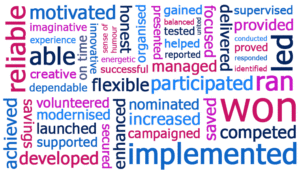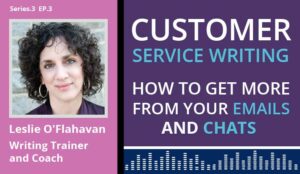Although there is no ‘one size fits all’ solution to writing a CV, following some simple guidelines and including key information will dramatically improve your chances of standing out and securing an interview. Brad Parker tells us how…
It is important to remember that your CV is essentially a marketing tool; it needs to display enough information so that the potential employer can identify an initial fit but still wants to meet with you to find out more and take your application to the next stage. The main topics that should be covered include work experience, key duties, key achievements and relevant systems knowledge.
Contact Details
There are several different components of a CV, but the first thing to add is your name and contact details at the top of the first page. This may sound obvious but many people do not include full details, such as home address, contact numbers and email address.
Personal Statement
Writing a CV is your sales pitch to the employer and your personal statement is your opener. This should sit below your personal details and you should use it to really stand out from the crowd. It should be approximately 50 words, making each sentence a key selling point. Highlight your professional merits and objectives, ensuring that it clearly states what you can do for the employer and emphasising why they should continue reading the rest of your CV. You don’t need to mention your work history or qualifications at this point – that is what the body of the CV is for.
Formatting
Remember to keep your formatting consistent throughout. Ideally, your CV should be no more than two A4 pages in length and should be bullet-pointed and factual. Try to limit yourself to the most relevant work experience and list employers and job roles in reverse chronological order.
Work Experience
This needs to include the company name, job title and key responsibilities. Remember to state the full dates of employment, including month and year. Next, include brief overviews of the companies you have worked for, highlighting their product or service and stating which industry sectors they operate in. This is important if the company is not particularly well known as the potential employer wants to see relevant experience.
Education and Skills
You would usually be expected to include all higher and further education. If you have no formal qualifications, focus on your skills, e.g. apprenticeship or traineeships. Once you have covered the technical requirements and any other institute or membership achievements, it’s always a good idea to include language skills (especially for multinationals) and IT skills. As for referees, it is sufficient to mention that these are ‘available on request’.
Gaps in Your Employment History
Make sure you explain all gaps as these tend to set off alarm bells and if there is one area that interviewers will try to probe, this is it. While you don’t have to include reasons for leaving a job, you may be asked about this at interview.
Competencies and Achievements
Remember to focus on your competencies throughout your CV. Never lose sight of what potential employers are looking for, match their technical and personal competency requirements and you’re off to a solid start. This means studying the job description and person specification carefully. Your CV needs to demonstrate your key achievements as well as past responsibilities; try to do this in a numerical manner in order to show the value you can bring to the company and link your achievements to their stated requirements.
Key performance Indicators (KPIs)
Try to integrate any KPIs into your past achievements; showing the KPIs you have previously worked towards is a great way to highlight your experience. Also state which systems you have experience of, this should include contact centre related systems such as customer relationship management (CRM), automatic call distributor (ACD) or workforce management (WFM) systems.
Additional Information
This will differ depending on the type of role and position you have previously held. For example, if you are applying for a sales-related role you will need to include information about past business you have won, this should specify the amount of new leads you personally generated, the value of sales you generated and the number of client meetings you attended.
If you are applying for a management role it is important to include information about how many staff you have previously managed, how many direct reports you had, whether the role was predominantly operational or strategic and whether you are flexible to relocate or travel between sites.
If you are applying for customer-service roles include the number of calls you have handled per day and any written customer contact experience you have, this can include both complaints and general correspondence.
Whichever type of role you are applying for, it is important to state how flexible you are in regards to working hours.
Finally, don’t forget to run a spell check and ensure that those competencies are working hard for you.

Brad Parker
Brad Parker is Senior Business Manager at Hays Contact Centres
Click here for our Top 50 Customer Service Interview Questions
Author: Jo Robinson
Published On: 21st Apr 2010 - Last modified: 9th May 2018
Read more about - Skills, Career, CV, Jobs
















This was very helpful.
Thanks. It’s interesting and helpful.
A great article – very helpful for all job hunters; A targeted CV will always increase your chances of securing an interview, in addition always send a covering letter with your CV application. A covering letter will make your CV look more professional and you can record both your key achievements and achievements of the company you are applying to, showing the employer you have spent time researching their organisation, winning you additional points.
great points. I would love to see a sample.
i want a complete format for writing a good CV
what are impottants of a cv
sir can you mail me any sample or just mail me the format or draft for writing a complete cv as soon as possible..
thnx in advance 🙂
Really very perfect points For CV I like it Thank you so much for Post …..
best guideline
Perfect guideline.
Very nice tool for guiding
Helpful tool.
Thanx